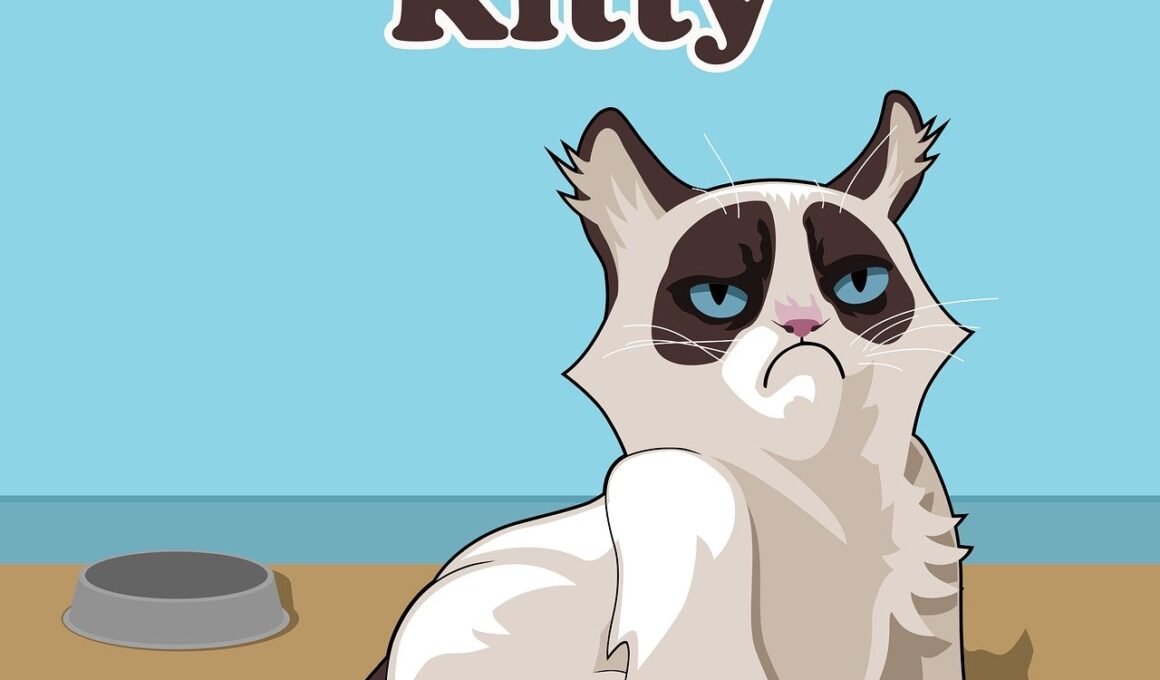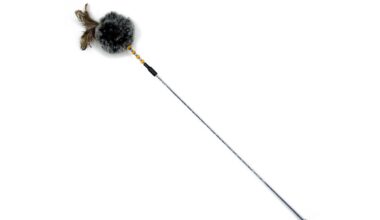Common Gastrointestinal Disorders in Cats and Their Symptoms
Gastrointestinal disorders in cats can significantly affect their health and quality of life. These issues may manifest in various forms, often causing discomfort and distress to your beloved feline. Recognizing symptoms early is crucial for effective treatment and management. Common symptoms include vomiting, diarrhea, and changes in appetite. If your cat shows these signs, it’s essential to consult a veterinarian promptly. Environmental and dietary factors often contribute to gastrointestinal disorders. Stressful situations, such as moving or introducing new pets, can trigger these issues. A balanced diet is vital for maintaining gastrointestinal health, particularly high-quality protein and fiber. Regular veterinary check-ups are essential as age-related changes can affect your cat’s digestive system. Cats with chronic gastrointestinal issues may require specialized diets or medications to manage their health effectively. Observing your cat for changes in behavior, weight loss, or lethargy can alert you to underlying problems. Remember, paying attention to your cat’s digestive health can prevent more significant health issues down the line.
One common gastrointestinal disorder in cats is inflammatory bowel disease (IBD). IBD often leads to chronic vomiting and diarrhea, causing stress and discomfort for your cat. It occurs when the gastrointestinal tract becomes inflamed, resulting in nutrient malabsorption. Symptoms may vary from mild to severe, including weight loss and appetite changes. IBD can be diagnosed through various methods, including blood tests and biopsies. Treatment usually involves dietary changes, medication, or supplementing probiotics. It’s essential to work closely with your veterinarian to determine the best approach for your cat. Understanding your cat’s unique needs will pave the way toward better health. Early detection plays a crucial role in managing IBD effectively. Talk to your vet about continuing care and monitoring to ensure your cat maintains a balanced and nutritious diet. By keeping a close watch on their dietary habits, you can identify any troubling symptoms sooner rather than later. Regular vet visits will help monitor your cat’s condition and prevent potential complications, allowing them to live a happy and healthy life despite IBD.
Exploring Dietary Indiscretion in Cats
Dietary indiscretion is another issue that can lead to gastrointestinal disorders. Cats are naturally curious, often consuming unsuitable foods like human leftovers or spoiled items. This behavior can result in vomiting and diarrhea. It’s critical to educate yourself about what foods are safe and unsafe for your cat. Foods like chocolate, onions, and garlic can be toxic to felines and should always be avoided. If you suspect your cat has indulged in something harmful, contact your veterinarian immediately for advice. Prevention is the best course of action. Providing your cat with a balanced and nutritionally appropriate diet can minimize risks associated with dietary indiscretion. Educate all family members about proper feeding practices and create a feeding schedule to help regulate your cat’s eating habits. Additionally, ensure that trash cans and food items are securely stored away from your curious kitty. Regularly cleaning and organizing your kitchen can also help keep your cat safe from ingestion of harmful substances. With care, you can greatly reduce the chances of dietary indiscretion impacting your cat’s health.
Another prevalent gastrointestinal disorder is constipation, often seen in older cats. Factors contributing to constipation can include dehydration, lack of fiber, or underlying health conditions. Symptoms of constipation may include frequent attempts to defecate, straining, and producing small amounts or no feces. Helping your cat maintain regular bowel movements is crucial for their overall health. Ensuring your cat has access to fresh water and encouraging a balanced diet rich in fiber can prevent constipation. If your cat experiences constipation, consult with your veterinarian for proper diagnosis and treatment options. Mild cases may be managed with dietary changes, while severe cases might require medical intervention. It’s essential to recognize signs of distress; if your cat appears uncomfortable or is refusing to eat, immediate attention is necessary. Regular exercise also promotes healthy bowel function, encouraging your cat to be active throughout the day. Additionally, consider adding fiber supplements to their diet under veterinary guidance. Taking these preventive measures can significantly improve your cat’s gastrointestinal health and overall well-being.
Understanding Gastrointestinal Infections
Gastrointestinal infections pose another serious threat to feline health. Bacterial and viral infections can cause severe digestive upset, resulting in symptoms such as diarrhea, vomiting, and lethargy. Common culprits include parasites, such as Giardia and roundworms, which can lead to further complications if left untreated. Regular stool checks can help detect these infections early. Vaccinations also play a crucial role in prevention, as they can protect against certain viral infections that impact the gastrointestinal system. If an infection is suspected, your veterinarian may recommend a fecal examination to identify the underlying cause. Treatment options may vary but often include prescribed medications, a special diet, and supportive care. Maintaining good hygiene and proper sanitation can further reduce the risk of gastrointestinal infections. Cleaning your cat’s litter box regularly and washing food bowls can help minimize harmful bacteria. Be vigilant about introducing any new pets into your home, as a new animal could bring infections as well. Raising awareness and taking precautionary measures will foster a healthier environment for your feline friend.
Pancreatitis is a painful condition that affects the gastrointestinal health of cats. This inflammation of the pancreas can cause lethargy, vomiting, and abdominal pain, both acute and chronic. Pancreatitis may arise from various causes, such as dietary indiscretion, obesity, or underlying health issues. Proper diagnosis often involves blood tests and ultrasound examinations to detect inflammation. If your cat exhibits related symptoms, don’t hesitate to bring them to your veterinarian for prompt evaluation. Treatment usually requires a combination of a special diet, hydration, and monitoring to handle any complications. Understanding your cat’s dietary needs is essential in managing pancreatitis and overall health. Feeding small, frequent meals with a focus on high-quality protein can ease the burden on the pancreas. Weight management is also vital in preventing pancreatitis; ensuring your cat maintains a healthy weight supports their overall well-being. Regular veterinary visits are critical to monitor any existing conditions that may exacerbate this disorder. By prioritizing nutrition and regular check-ups, you can help safeguard your cat’s gastrointestinal health and improve their quality of life.
Summarizing the Importance of Gastrointestinal Health
Maintaining gastrointestinal health is essential for your cat’s overall well-being, encompassing a wide range of challenges. By being informed about common disorders and their symptoms, pet owners can better recognize potential problems early. Educating yourself on safe dietary practices can significantly enhance your cat’s health, preventing unnecessary health issues. Regular veterinary care is a key component to managing any pre-existing conditions, ensuring preventive measures are in place, and adjusting treatments as necessary for your feline friend. Observing your cat’s behavior for rapid changes can alert you to gastrointestinal issues requiring attention. Creating a stress-free and nurturing environment can also minimize potential triggers for digestive issues. Ensuring hydration and proper nutrition through balanced diets rich in fiber can enhance digestive functionality. Moreover, understanding that each cat may have unique needs is vital in fostering their health. Using appropriate supplements and preventive methods can help maintain healthy gastrointestinal function. Together, these strategies contribute to better management of common gastrointestinal disorders, promoting a lifelong habit of health and happiness for your beloved cat.
In conclusion, paying close attention to your cat’s gastrointestinal health is vital for their overall well-being. By understanding common disorders and implementing preventative measures, you can improve your pet’s quality of life. Early intervention is key when it comes to identifying issues like IBD or pancreatitis. Maintaining a balanced diet, regular veterinarian visits, and proper hygiene practices significantly reduce the likelihood of gastrointestinal problems. Always consult your veterinarian if you notice any unusual behavior or symptoms. Engaging with your cat socially and physically helps stimulate their mental well-being and can ease stress-related digestive issues. Additionally, having an understanding of safe and unsafe foods can guide you in providing a nurturing environment. Make sure to protect your cat from common toxins or unsafe items around the home. Regularly observing your cat will help identify any troubling symptoms early. Most importantly, prioritize creating a healthy lifestyle for your feline friend; it fosters a long, happy, and healthy life. By educating yourself about feline gastrointestinal health, you take vital steps towards ensuring your cat remains in good condition, free of disorders.


